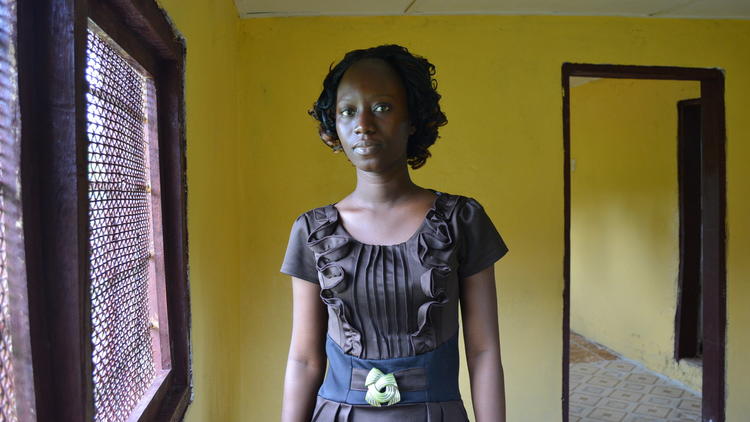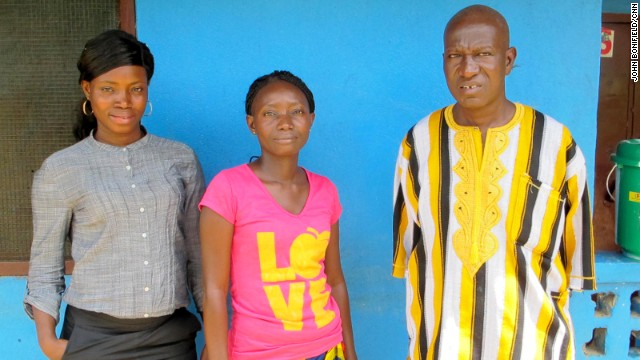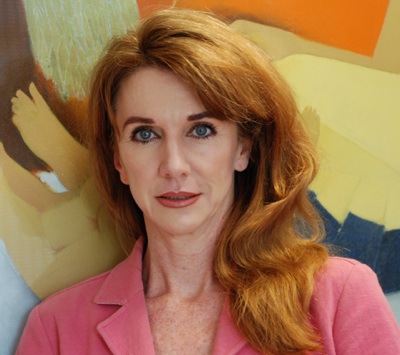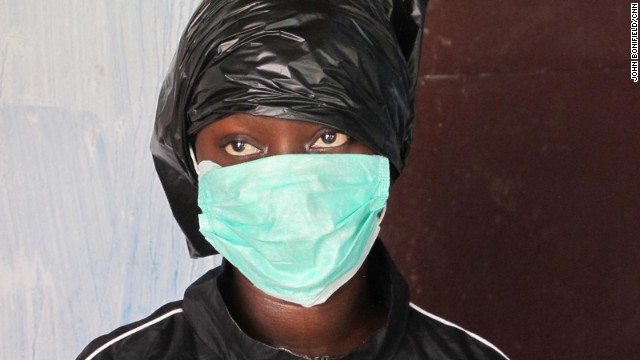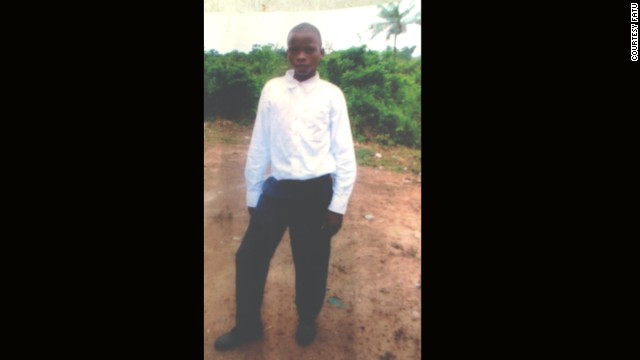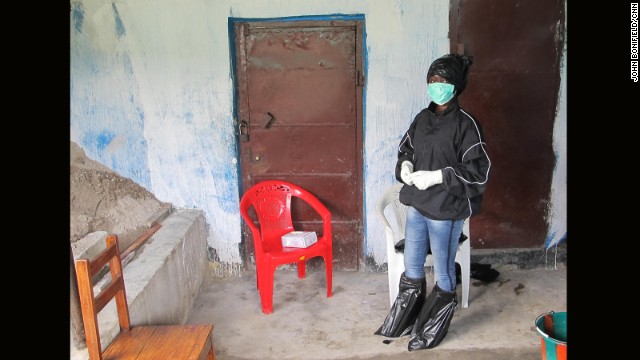22-Year-Old Single-Handedly Saves Father, Mother And Sister From Ebola In Her Home
The story of a 22-year-old Fatu Kekula, a nursing student who saved her father, mother and sister from Ebola, and in doing so, Fatu invented her own protective gear which has now been adopted by international aid workers.
Back in August, when 22-year-old Fatu Kekula's father, Moses; mother, Victoria; sister, Vivienne; and a young cousin, Alfred Wennie, all fell ill with Ebola, she called for an ambulance and begged for help. But for more than two weeks, none came.
Her father, mother, sister and cousin all contracted the deadly virus and, to her horror, local hospitals refused to take them in. “No one came near me. No one! I were all alone, all alone,” she said.
Fatu had been away at a relative's home in Grand Bassa County when her father, a 52-year-old administrator at a local clinic, got sick on 29 July. Fatu was called home on 3 August, after her mother couldn't handle his dramatically weakening condition.
About a week earlier, Moses had been diagnosed with typhoid and given a bed that had just been vacated by an Ebola patient in the clinic where he worked. His wife, Victoria, sent her four youngest foster children away and did her best to care for him, but when he weakened dramatically, with vomiting and diarrhea, she called Fatu home.
latimes.comFatu and her sister, Vivienne, took Moses by taxi, 90 minutes on punishing roads, to Monrovia, but no Ebola treatment unit could take him. On the ride back, Fatu made her plan. “Since I know small, small medicine, I said, ‘God, with my faith I’m going to get my father home, and he’ll survive.’”
latimes.comShe set up a makeshift isolation room outside the house. She bought raincoats, rain boots, chlorine etcetera. Then she went to work. In the midst of caring for her father, Fatu's mother, too, became sick. Then the disease struck her sister and her cousin.
Kekula saved, from left, her sister, Vivian, 28, her mother, Victoria, 57, and her father, Moses, 52.
Image via turner.comFatu stayed healthy, which is noteworthy considering that more than 300 health care workers have become infected with Ebola, and she didn't even have personal protection equipment -- those white space suits and goggles used in Ebola treatment units.
cnn.comInstead Fatu, who's in her final year of nursing school, invented her own equipment. International aid workers heard about Fatu's "trash bag method" and are now teaching it to other West Africans who can't get into hospitals and don't have protective gear of their own.
cnn.comWhen she entered her father’s treatment room she put on socks, plastic bags donned like waders, rain boots, four sets of gloves, a coat, a mask and a plastic bag over her hair. He wouldn’t eat. Carefully, she put in an intravenous drip. She poured rehydration liquids down his throat, drop by drop.
latimes.comShe gave him blood pressure medicine, antibiotics, analgesics for his fever and splitting headache. She even gave him an antiretroviral medicine normally used to save the lives of AIDS patients. “He was restless. I did his blood pressure and it was very low, and I was afraid that he might die,” she said. Moses Kekula was struggling to breathe, with a shattering headache, aches all over his body.
latimes.comEvery day, several times a day for about two weeks, Fatu put trash bags over her socks and tied them in a knot over her calves. Then she put on a pair of rubber boots and then another set of trash bags over the boots. She wrapped her hair in a pair of stockings and over that a trash bag. Next she donned a raincoat and four pairs of gloves on each hand, followed by a mask.
cnn.comIt was an arduous and time-consuming process, but Fatu was religious about it, never cutting corners. Even UNICEF Spokesperson Sarah Crowe praised Fatu for her efforts.
"Essentially this is a tale of how communities are doing things for themselves," Crowe said. "Our approach is to listen and work with communities and help them do the best they can with what they have."
cnn.comShe emphasized, of course, that it would be better for patients to be in real hospitals with doctors and nurses in protective gear -- it's just that those things aren't available to many West Africans. No one knows that better than Fatu.
cnn.comWhile operating her one-woman Ebola hospital for two weeks, Fatu consulted with their family doctor, who would talk to her on the phone, but wouldn't come to the house
She gave them medicines she obtained from the local clinic and fluids through intravenous lines that she started. At times, her patients' blood pressure plummeted so low she feared they would die.
cnn.comAround the clock, one or the other of them would be weakly calling Fatu for help. She dozed 15 minutes here, 30 minutes there. “It was a bit difficult for me to sleep because all the time they would call me, maybe two of them would call me at the same time. Every time I would go into a dangerous room, I would dress up,” she said.
latimes.com"I cried many times," she said. "I said 'God, you want to tell me I'm going to lose my entire family?' "
cnn.com“The whole virus thing, it’s like carrying a baby in your hands, because it turns them into a child. You have to be sorry for them. You have to put yourself into the shoes of that person and ask yourself, ‘What if it were me?’”
latimes.comEventually, her father, mother, and sister rallied and were well on their way to recovery when space became available at JFK Medical Center on 17 August. Her cousin, Alfred, never recovered, though, and passed away at the hospital the next day.
Fatu Kekula has cared for four of her family members with Ebola, keeping three alive without infecting herself.
Image via turner.com“My approach was just to treat them based on their symptoms. I never felt tired. I was fighting for my family and their lives. I would do it for other people in the hospital so I knew I could do it for my family.” On the 18th day, as Alfred's condition swiftly declined, an ambulance arrived. She watched it depart with her family members, fear gripping her heart. Would she see them again?
latimes.com“I was worried. I worried a lot because my entire family went there. They had the symptoms of the virus, and the virus had no cure.” She prayed as hard as she could that their Ebola tests would be negative. All would come back positive. Outside John F. Kennedy Medical Center, Alfred collapsed, convulsing.
latimes.com“He said, ‘Aunty, I want to lie down,’” Victoria said. There were no beds inside, so Moses, Victoria, Vivienne and Alfred were given mattresses lined up next to each on the floor. Alfred’s skin became hot, he started bleeding from his mouth, convulsing again. When Victoria awoke the next morning at 5, she saw Alfred, her foster child, just a yard away on the next mattress, drenched in blood from his head.
latimes.com"I was afraid to touch him," she said. "Then I saw he wasn’t breathing. “I cried. I said ‘It’s a shame on me, because I took somebody’s child, a relative’s child, and he died in my hands.’” Victoria’s health declined sharply, she began ranting unintelligibly, her skin broke out in a rash. But she would ultimately survive.
latimes.comKekula's 14-year-old cousin who was living with them, Alfred Winnie, passed away.
Image via turner.comAfter helping her family, Fatu wants to spread hope, passing her knowledge on to other desperate families. She addressed workshops organised by the Ministry of Health, teaching people how to use plastic bags to protect themselves when there's nothing else.
Her trash bag protection method is being taught to others in West Africa who can't get personal protective equipment.
Image via turner.com“I’m going to teach them the things I’ve already done, because I treated four people, and only one died,” she said.
latimes.comHer father, who is very proud of her, said: "She saved my life through the almighty God. I'm sure she'll be a great giant of Liberia."
Now he's working to find a scholarship for Fatu so she can finish her final year of nursing school. He has no doubt his daughter will go on to save many more people during her life.
cnn.com